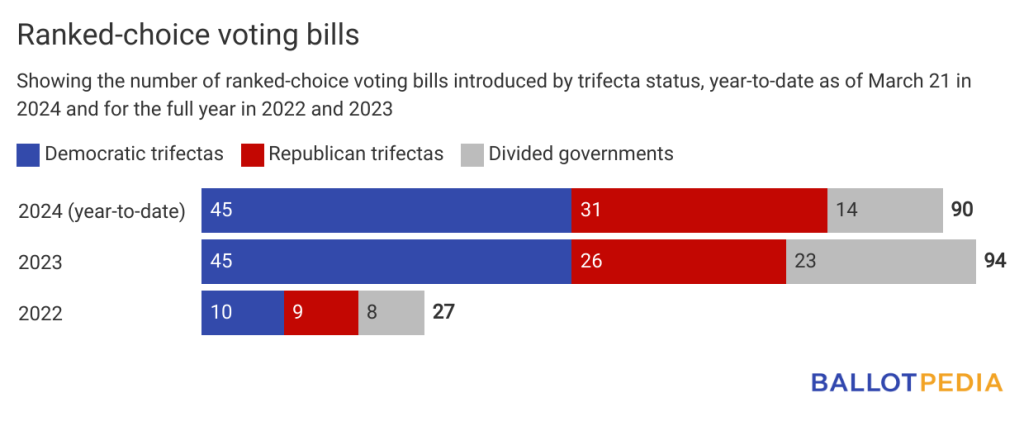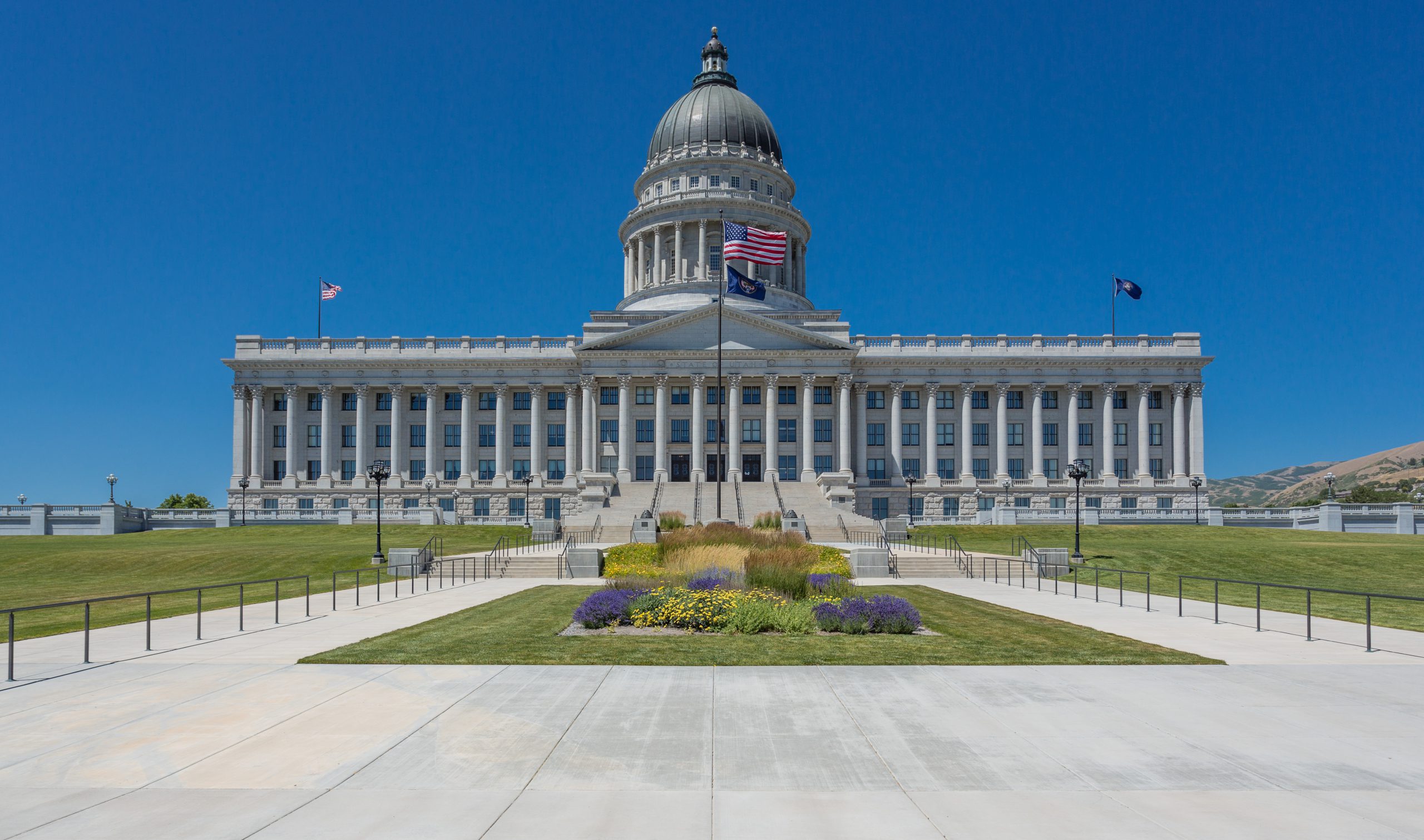More ranked-choice voting (RCV) bans and repeals are advancing in comparison with new authorizations during 2024 state legislative sessions.
Forty bills this year would ban or repeal uses of RCV, while 69 would establish a new use of RCV. Prospective bans make up a greater share of bills that have passed at least one chamber of a legislature. All figures are as of March 29, 2024.
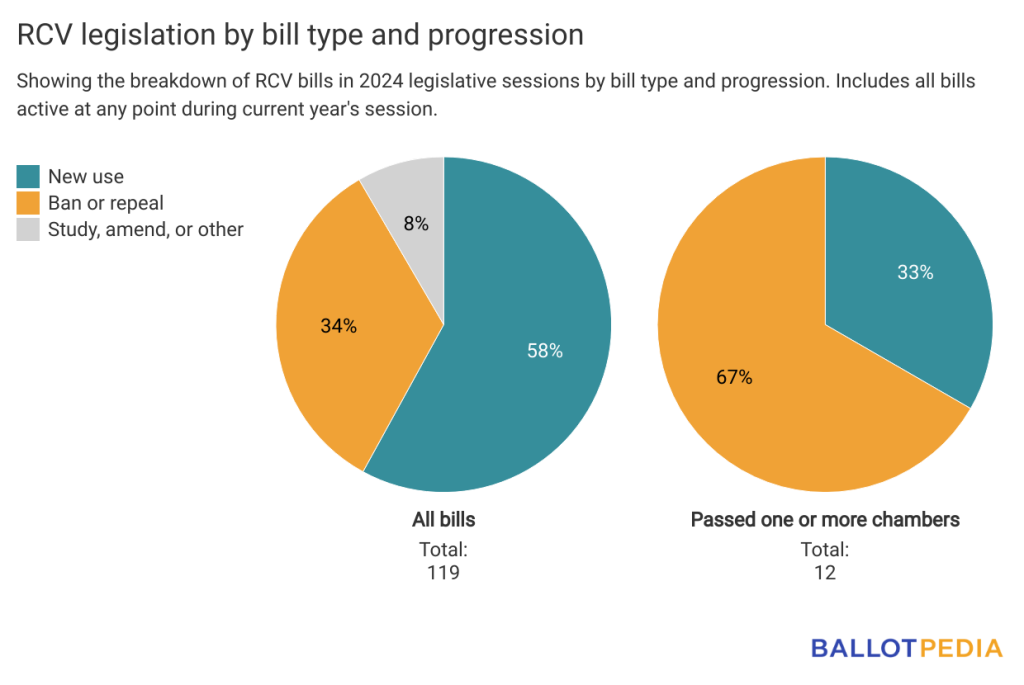
Legislators in 19 states have introduced legislation that would ban or repeal ranked-choice voting in their states. Eight of these bills, in seven states, have passed at least one chamber of a legislature. All but one of these states has a Republican trifecta. One of those bills, in Utah, ultimately died without further advancement.
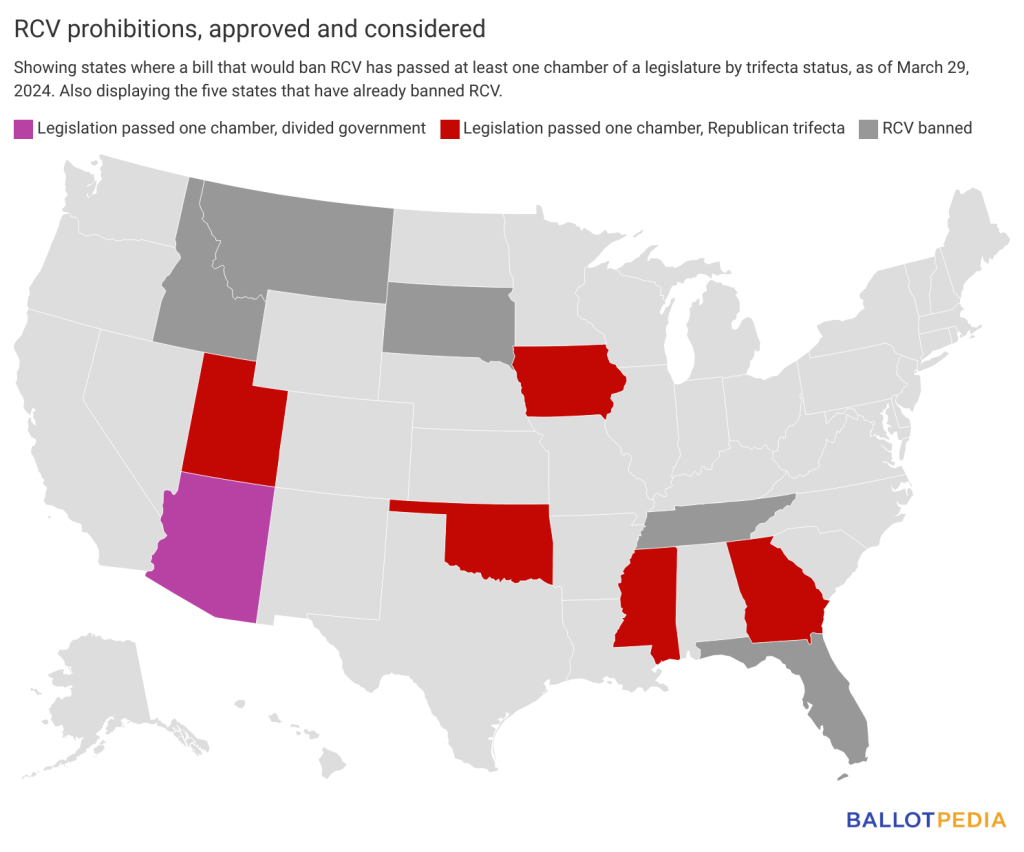
The eight bills that would ban or repeal RCV that have passed at least one chamber are:
- Arizona’s SCR1011 and HCR2001 – These identical bills would refer a ballot measure to amend the state constitution to specify that only U.S. citizens who are at least 18 years-old are eligible to vote in the state. This bill effectively prohibits RCV by stipulating that “a person may not vote for more candidates for an office than the number of offices to be filled.”
- Georgia’s SB355 – Amends election code and adds the clause: “Ranked-choice voting shall not be used in determining the election or nomination of any candidate to any local, state, or federal elective office.”
- Iowa’s HF2610 – Adds a provision to state election code that says: “An election in this state shall not be conducted using ranked choice voting or instant runoff voting”
- Louisiana’s SB101 – Defines RCV and instant runoff voting and adds “Ranked-choice voting and instant runoff voting prohibited.”
- Mississippi’s SB2367 – Creates a new section of statute that provides that “Ranked-choice voting is prohibited in statewide, county, local, municipal and school district elections in the State of Mississippi”.
- Oklahoma’s HB3156 – Adds a provision to election code that says: “No election conducted by the State Election Board, a county election board, or any municipality authorized to conduct elections in Oklahoma shall use ranked choice voting, ranked voting, proportional ranked voting, preferential voting, or instant runoff voting.”
- Utah’s HB290 – This bill, which ultimately died after passing the lower chamber, would have repealed the state’s Municipal Alternate Voting Methods Pilot Project. The pilot project was originally authorized in 2018 and will expire in 2026. Currently, 23 jurisdictions in the state are participating members in the pilot.
Since 2021, five states with Republican trifectas have passed legislation banning or prohibiting ranked-choice voting (RCV), including three states that did so last year.
The four bills that would allow or require new uses of RCV have passed at least one chamber are:
- Maine’s LD1578 – Requires RCV for presidential primaries and makes Maine a member of the National Popular Vote Interstate Compact. This bill has passed both chambers of the Maine Legislature.
- Vermont’s S32 – Implements RCV for presidential primaries.
- Virginia’s SB270 – Would allow presidential primaries to use ranked-choice voting.
- Virginia’s SB248 – Would permit the use of RCV for any local or constitutional office. This bill has passed both chambers of the Virginia General Assembly.
Maine’s LD1578 is the only bipartisan-sponsored ranked-choice voting bill that has passed a legislative chamber.
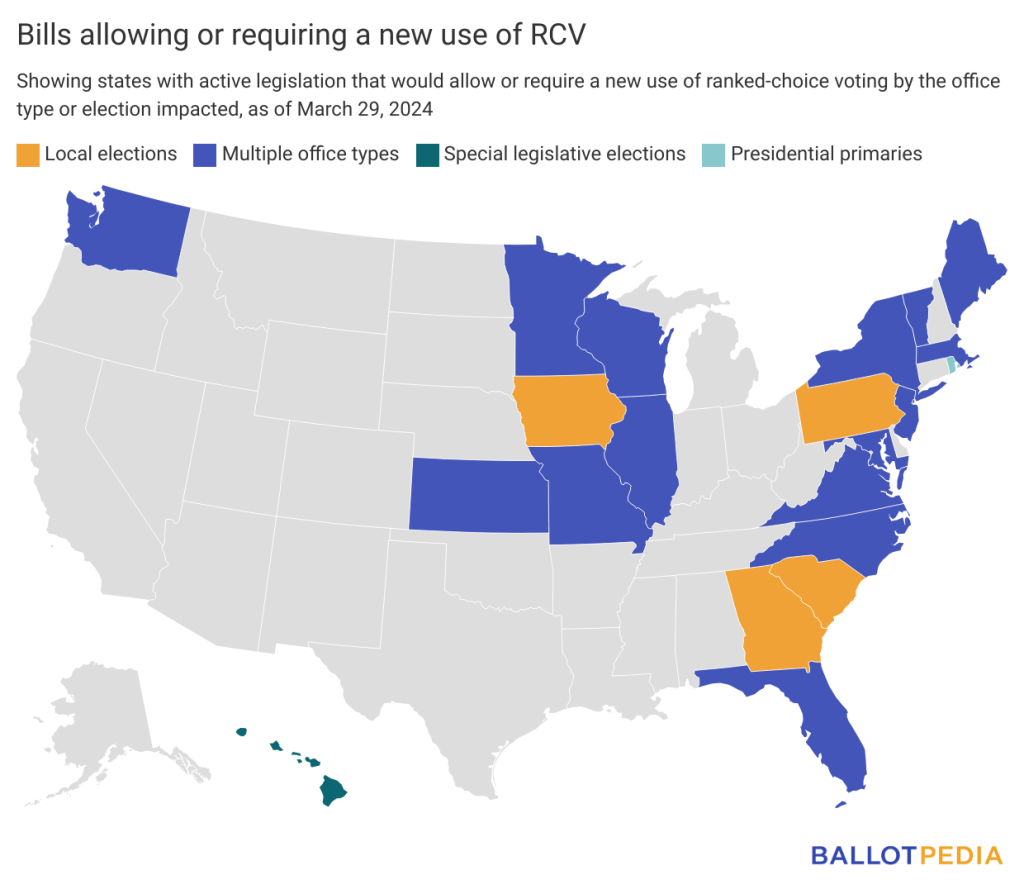
In total, there have been 119 RCV bills active in this year’s legislative sessions, with 90 of these introduced since the beginning of the year.
